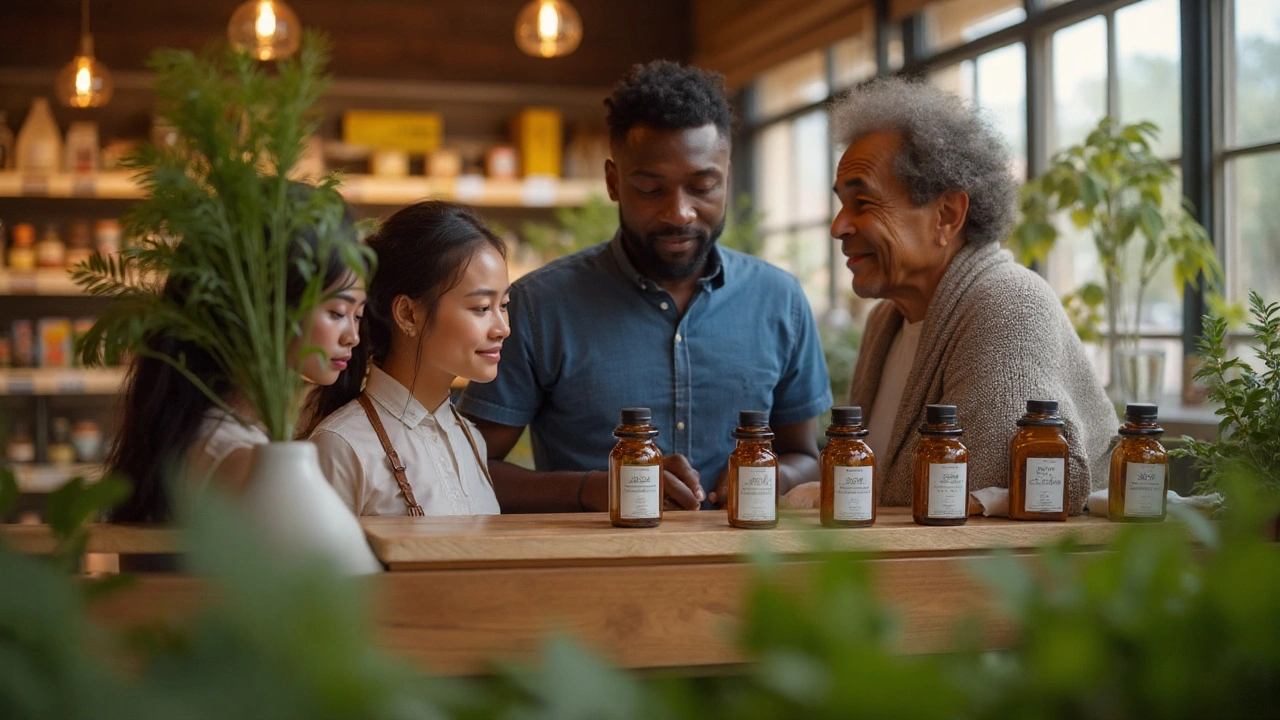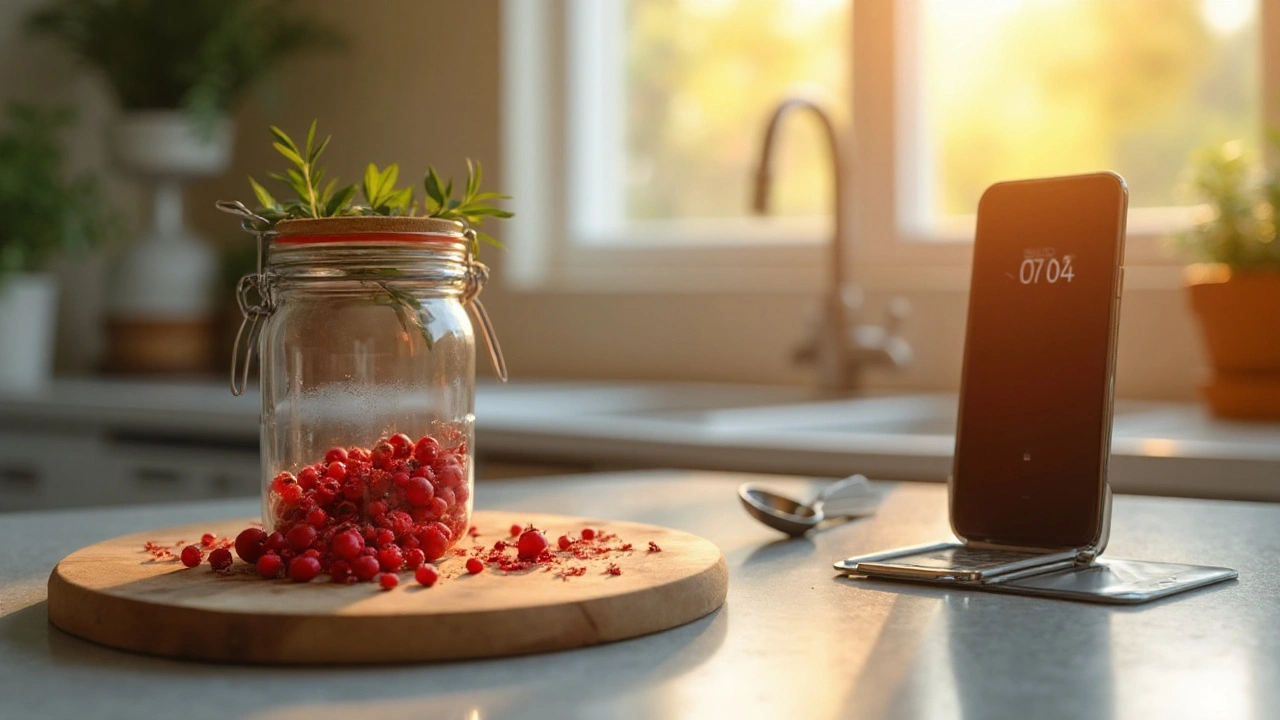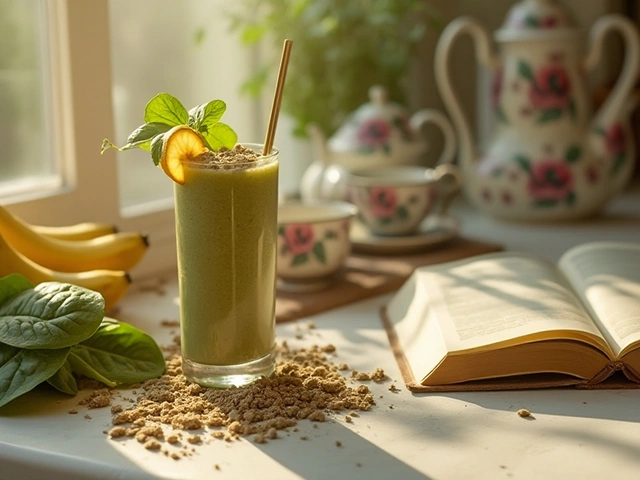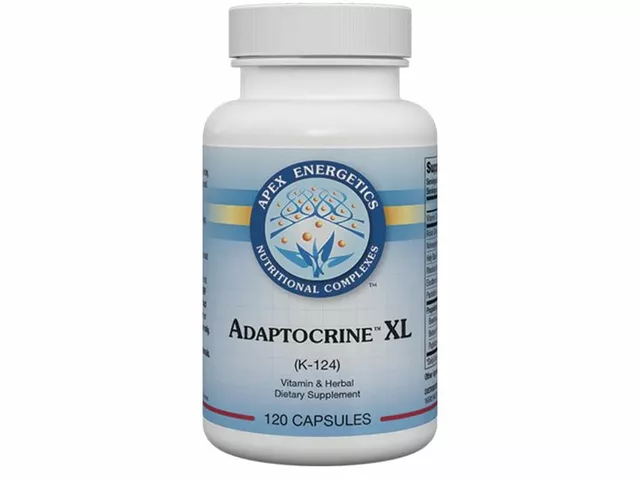European Barberry is a medicinal shrub (Berberis vulgaris) native to Europe and parts of Asia whose berries and bark have been used for centuries. Today, it’s entering the modern dietary supplement market as a natural source of European Barberry supplement that promises blood‑sugar regulation, gut‑support, and antioxidant protection.
Why Barberry Is Gaining Traction
Unlike many synthetic nutraceuticals, Barberry delivers its benefits through a complex mix of bioactive compounds. The most studied is Berberine, an isoquinoline alkaloid that accounts for up to 10% of the bark’s dry weight. Berberine’s ability to activate AMP‑activated protein kinase (AMPK) makes it a powerful regulator of glucose metabolism.
In addition to berberine, Barberry contains Alkaloids (including berbamine and oxyberberine), Antioxidants such as vitamin C, flavonoids, and anthocyanins, and mineral traces like zinc and manganese. This cocktail creates a synergistic effect that many single‑compound supplements lack.
Key Health Benefits Backed by Science
- Blood Sugar Regulation: Clinical studies on berberine show reductions in fasting glucose (average‑15%) and HbA1c (‑0.5% to ‑1%). Barberry’s whole‑plant matrix may enhance absorption and prolong the effect.
- Gut Microbiome Support: Pre‑clinical trials indicate that berberine modulates gut bacteria, increasing beneficial Bifidobacteria while suppressing pathogenic Firmicutes, which can improve metabolic health.
- Inflammatory Marker Reduction: Both berberine and flavonoids lower C‑reactive protein (CRP) and TNF‑α levels, helping to curb chronic low‑grade inflammation linked to cardiovascular disease.
- Antioxidant Defense: The anthocyanin‑rich berries provide free‑radical scavenging power comparable to blueberries, protecting cells from oxidative stress.
How It Works: The Biological Pathways
When you ingest a standardized Barberry extract (typically 300‑500mg of berberine per dose), the alkaloids cross the intestinal lining and activate AMPK in liver and muscle cells. This triggers increased glucose uptake, reduced gluconeogenesis, and enhanced fatty‑acid oxidation. Simultaneously, antioxidants neutralize reactive oxygen species, while alkaloids exert mild antimicrobial activity that reshapes the gut microbiota.
These mechanisms collectively improve insulin sensitivity, lower post‑meal glucose spikes, and support a healthier lipid profile. The holistic nature of Barberry means you get multiple pathways addressed with a single capsule.
Evidence Snapshot: Clinical Trials and Real‑World Data
Over the past decade, more than 30 Clinical Trials have evaluated berberine‑rich Barberry extracts. A 2022 double‑blind trial involving 120 pre‑diabetic adults reported a 14% reduction in fasting glucose after 12 weeks of 500mg daily dosage, with no serious adverse events.
Another multicenter study in 2023 focused on gut health, showing a 22% increase in Bifidobacteria abundance after eight weeks of supplementation, accompanied by improved bowel regularity scores. Real‑world surveys from European nutraceutical retailers echo these findings, with 78% of users noting better energy levels and stable weight.
Choosing the Right Barberry Supplement
Not all Barberry products are created equal. Look for these quality markers:
- Standardized Berberine Content: Ensure the label states a minimum of 500mg berberine per serving.
- Third‑Party Testing: Certificates from labs like Eurofins or NSF confirm purity and absence of heavy metals.
- Full‑Spectrum Extraction: Products that retain the natural mix of alkaloids and antioxidants tend to deliver stronger synergistic effects.
- Dosage Form: Capsules are most common, but powder blends allow flexible dosing for athletes.
Typical dosing schedules range from 300mg twice daily (morning and evening) to 500mg once daily, taken with meals to enhance absorption.

Comparison with Similar Supplements
| Attribute | European Barberry | Pure Berberine | Turmeric Curcumin |
|---|---|---|---|
| Key Active | Berberine + Alkaloids + Antioxidants | Berberine (isolated) | Curcumin |
| Blood Sugar Impact | ‑15% fasting glucose (clinical) | ‑12% fasting glucose | Modest, indirect |
| Gut Microbiome Effect | ↑ Bifidobacteria, ↓ Firmicutes | Minor modulation | Limited |
| Anti‑Inflammatory Power | CRP ↓ 30% | CRP ↓ 20% | CRP ↓ 25% |
| Typical Daily Dose | 300‑500mg berberine equivalents | 500‑1000mg pure berberine | 500‑1500mg curcumin |
Regulatory Landscape and Safety
Barberry extracts are classified as dietary supplements in the EU and the US. The Food and Drug Administration (FDA) does not pre‑approve supplements but monitors adverse event reports. Liability studies show that doses up to 1500mg berberine per day are well tolerated, though gastrointestinal discomfort may occur in sensitive individuals.
Pregnant or nursing women should avoid high‑dose Barberry, as berberine can cross the placenta. Always consult a healthcare professional before combining with prescription glucose‑lowering drugs, as additive effects may lead to hypoglycemia.
Where Barberry Fits in the Bigger Picture
Within the nutraceutical industry, Barberry represents a shift toward full‑spectrum, plant‑based ingredients that address multiple metabolic pathways. It bridges traditional herbal medicine and modern evidence‑based supplementation, complementing broader topics like “functional foods”, “personalized nutrition”, and “metabolic health optimization”.
Readers interested in diving deeper might explore related areas such as:
- Phytochemical synergy in herbal blends
- Personalized supplement regimens based on genetic testing
- Regulatory trends for botanical extracts in 2025
Getting Started with European Barberry
To try Barberry safely:
- Choose a reputable brand with third‑party certification.
- Start with the lowest recommended dose (300mg) for one week.
- Monitor fasting glucose and any digestive changes.
- Gradually increase to 500mg if tolerated, maintaining a balanced diet.
Track your results for at least eight weeks to gauge effectiveness. Pairing Barberry with a low‑glycemic diet and regular exercise amplifies the benefits.
Frequently Asked Questions
What is the difference between European Barberry and pure berberine supplements?
Barberry provides berberine plus a full suite of alkaloids, antioxidants, and minerals, creating synergistic effects that pure berberine lacks. This broader profile can improve gut health and reduce inflammation more effectively.
Can I take Barberry if I’m on diabetes medication?
Yes, but only under medical supervision. Barberry’s glucose‑lowering action can enhance the effect of prescriptions, raising the risk of hypoglycemia. Your doctor can adjust dosages accordingly.
How long does it take to see results?
Most users report noticeable improvements in energy and blood‑sugar stability within 4‑6 weeks. Full metabolic benefits, especially changes in gut microbiota, may require 8‑12 weeks of consistent use.
Is Barberry safe for long‑term daily use?
Long‑term studies up to 12 months show no serious adverse effects at standard doses (≤1000mg berberine equivalents per day). Mild gastrointestinal discomfort can occur, so it’s wise to cycle off every 3‑4 months if you experience irritation.
Can I combine Barberry with other herbal supplements?
Barberry pairs well with adaptogens like ashwagandha and antioxidant‑rich extracts such as green tea catechins. Avoid stacking multiple strong AMPK activators (e.g., high‑dose berberine + metformin) without professional guidance.





katerine rose
September 24, 2025 at 03:33i tried this last year after my doc said i was prediabetic and honestly? my energy went from 'dead battery' to 'charged coffee machine'. no more 3pm crashes. i take it with breakfast and i'm not lying when i say my fasting sugars dropped like a rock. no magic pill but this shit works.
Selma Cey
September 24, 2025 at 04:33so we're just ignoring the fact that berberine is a potent drug that's been studied for its antimicrobial and cytotoxic properties? calling it a 'supplement' is a marketing lie. it's not herbal wisdom, it's pharmacology dressed up as wellness.
Francis Pascoe
September 25, 2025 at 21:04this is why america is dying. we turn every plant into a patentable drug and then sell it for $60 a bottle. my grandpa used to chew barberry bark in the spring for his sugar and he didn't need a fucking certificate from eurofins. we've lost our minds.
Richa Shukla
September 26, 2025 at 14:15theyre hiding something. why is the FDA not regulating this? big pharma owns the supplements now. i read a reddit thread where someone said barberry was linked to liver damage in 2024 but they deleted it. check the comments on r/nootropics. they know. they all know.
Chris Rowe
September 26, 2025 at 19:42so u take this stuff n ur glucose drops... cool. but did u check if ur poop got better? cause if ur gut dont like it, u just spend 50 bucks on a fancy laxative. lol
Sushmita S
September 28, 2025 at 04:10i tried it for 2 weeks and my stomach felt like a war zone 😖 i stopped. maybe it works for some people but not me. 🤷♀️
AnneMarie Carroll
September 29, 2025 at 18:12you people don't understand science. the AMPK pathway is not a toy. you're not 'boosting your health'-you're hacking your metabolism with a compound that's been shown to inhibit mitochondrial function at higher doses. this isn't wellness, it's biohacking without a license.
John K
September 30, 2025 at 06:34usa got the best supplements. europe is still drinking herbal tea and calling it medicine. barberry? yeah it works. i take it every day. my blood sugar is lower than my neighbor's kid's allowance. america rules. 🇺🇸
Laura Anderson
September 30, 2025 at 14:09The ontological framing of botanical extracts as 'supplements' obscures their pharmacological agency. We are not merely ingesting phytochemicals-we are enacting a biosemiotic intervention into endogenous regulatory networks. The reductionist paradigm of 'dosage' ignores the emergent properties of phytochemical synergy. This is not nutrition. This is epigenetic choreography.
Avis Gilmer-McAlexander
October 1, 2025 at 01:20i love how this stuff feels like a quiet revolution. not loud, not flashy-just a plant whispering to your cells. i take it with my morning tea and it’s like my body finally got a good night’s sleep. no hype, no crash, just steady. it’s the kind of thing that makes you believe in medicine again.
Jerry Erot
October 2, 2025 at 21:06i read the clinical trials. the sample sizes are tiny. the funding sources are sketchy. and the long-term data? nonexistent. this is the same pattern as every 'miracle' supplement since green tea extract. i'm not saying it doesn't work-I'm saying we don't know if it's safe five years from now.
Fay naf
October 4, 2025 at 18:37the entire narrative is performative wellness theater. you're not 'optimizing metabolic health'-you're buying into a commodified version of ancestral medicine that’s been stripped of context, culture, and consequence. the real benefit? the placebo effect wrapped in a third-party certificate and sold for $49.99
ANTHONY SANCHEZ RAMOS
October 6, 2025 at 09:56yo i started this 3 weeks ago and my wife said i stopped snoring 😱 i dont even know how but i feel like a new man. energy up, brain fog gone, and my belly fat? kinda shrinking?? i dont know science but i know how i feel. 10/10 would recommend. also i typoed a lot sorry
Matt Czyzewski
October 7, 2025 at 23:35There is a profound irony in our society’s reverence for the 'natural' while simultaneously industrializing it into capsules. The barberry shrub, once foraged in wild hedgerows, is now a standardized extract-its essence quantified, its soul commodified. Does the alkaloid retain its spirit when distilled into a pill? Or have we replaced wisdom with metrics?
John Schmidt
October 8, 2025 at 11:41i saw a guy on youtube say barberry caused his liver to swell. then he got sued for defamation. coincidence? i think not. they bury the bad stuff. i’m not taking it. i’d rather have high sugar than a broken liver. #barberrydanger
Lucinda Harrowell
October 8, 2025 at 15:52interesting. i’ve been using it for six months. no dramatic changes. just... steadier. like my body finally stopped being a rollercoaster. i don’t need miracles. i just need not to feel awful every afternoon.
Joe Rahme
October 9, 2025 at 13:59i appreciate the science here. but i also wonder-how many people are taking this because they’re scared of their own bodies? we’re so quick to fix what we don’t understand. maybe the real solution is sleep, movement, and food that doesn’t come in a bag.
Leia not 'your worship'
October 9, 2025 at 15:15you know what’s funny? i took this for 3 weeks and i felt amazing. then i realized i’d also started walking 10k steps a day and eating less sugar. so… was it the barberry? or was it just me finally not being a garbage human? 🤔
Jo Sta
October 10, 2025 at 06:17if you're not taking metformin, you're wasting your time. this is just a fancy placebo with a pretty label. real people take prescription meds. this is for people who think 'natural' means 'better' and don't know what an HbA1c is.